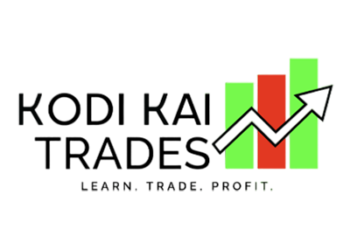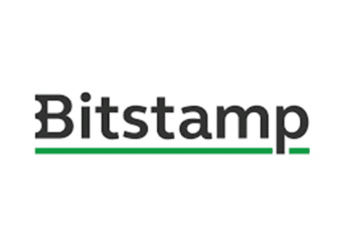Traders the world over have been developing and practicing countless methods to ‘beat the market’ and make consistent profits. Others are also equally focused on managing their downside through hedging strategies.
Hedging in forex works particularly well primarily because of the presence of pairs. When the base currency goes up, the quote currency goes down, and vice versa. The possibilities for forex hedging become even more diverse once traders can exploit countless correlations across other currencies.
Foreign exchange is known as one of the most liquid yet highly volatile of all financial instruments. Although these factors present some substantial profiting opportunities, risk-conscious traders employ hedging to minimize the volatility risks.
Like any strategy, you need a broker to execute it. Fortunately, the majority of brokerages permit hedging, although some don’t. Hence, we’ve created this guide providing the five best options to narrow your selection process despite the innumerable choices available.
You will also learn some valuable insights into hedging, why traders use this strategy, and some advantages and disadvantages.
Which are the best forex hedging brokers?
Below is a list reviewing the five best-recommended forex brokers for hedging.
| Broker | Founded | HQ | Regulations | Platforms | Markets | Deposit from | Leverage up to | Website |
 | 2009 | Cyprus | CySEC, FCA, ASIC | MT4, MT5 | Forex, Indices, Commodities, Stocks, Metals | $5 | 1:888 | visit |
 | 2010 | Cyprus | FCA, CySEC, DFSA, FSCA | MT4, MT5 | Forex, Indices, Commodities, Stocks, Bonds, Crypto | $5 | 1:1000 | visit |
 | 2006 | UK | FCA, CySEC, FSCA, SCB | MT4, MT5, cTrader, FxPro | Forex, Indices, Futures, Options, Stocks, Metals, Energies | $100 | 1:200 | visit |
 | 1974 | UK | CFTC, NFA, FCA, FINMA | MT4, IG | Forex, Indices, Commodities, Stocks, Options, Bonds, ETFs | $0 | 1:50 | visit |
 | 2007 | Australia | ASIC, FCA, CySEC | MT4, MT5, cTrader | Forex, Indices, Commodities, Stocks, Bonds, Futures, Crypto | $250 | 1:500 | visit |
XM: Best Hedging Forex Broker Overall
‘Choose a big, fair, and human broker’ is one of XM’s taglines, re-emphasizing the broker’s accommodation to all clients regardless of their net worth, skill, and experience. XM began operations in 2009 and is now a subsidiary of Trading Point Holdings.
XM claims to serve more than 5 million clients globally in forex, indices, energies, commodities, metals, and stocks trading services. The broker is licensed by the primary forex regulators in Australia, Cyprus, Dubai, and Belize.
There are no hedging restrictions with XM, and clients benefit from no hidden terms on the broker’s pricing and execution across all their accounts. New clients are offered a $30 no deposit bonus with reasonable terms and conditions if they’d like to test-drive XM’s trading conditions.
From account opening, depositing and withdrawing, managing your accounts, multi-language customer support, and, last but not least, trading, everything with XM is seamless and hassle-free.
Advantages
- Regulated by several regulatory bodies
- Broad choice of financial instruments provided
- Costless funding and depositing
- Traders can open their accounts in multiple base currency denominations
- Provides numerous secure payment methods
Disadvantages
- An inactivity charge applies
- Limited account range available
HotForex: Top Forex Hedging Broker Offering Multiple Accounts
The ‘hot’ in HotForex stands for Honesty, Openness, and Transparency, representing some of the broker’s fundamental values. HotForex has been a credible and accessible brokerage brand since beginning operations in 2010.
The broker claims to have opened more than 2 million live accounts from inception. Clients can choose from over 1200 financial instruments across currencies, equities, metals, bonds, energies, and commodities.
One of the tremendous benefits is the number of accounts you can open with HotForex, namely micro, premium, zero spread, auto, copy trading, and VIP. The lowest deposit is $5 on the micro account, meaning the broker caters well even to cash-strapped retail traders.
Moreover, HotForex is licensed by the primary regulators in Cyprus, the United Kingdom, Mauritius, South Africa, Seychelles, and Dubai and has some regional offices in these countries.
All in all, HotForex is another top forex hedging broker backed by years of experience, tight regulation, reasonable costs, advantageous trading conditions, and top-notch customer support.
Advantages
- Multi-regulated
- Offers numerous accounts
- Extensive selection of instruments available
- Provides MT4 and MT5 trading platforms
Disadvantages
- An inactivity fee is charged
- Limited account base currency denominations
FxPro: Top Forex Hedging Broker Offering Multiple Trading Platforms
Since 2006, FxPro has proven to be the ‘world’s #1 FX broker.’ The multi-regulated broker prides itself on no dealing desk intervention, ultra-fast execution, competitive pricing, and immense liquidity provision.
Millions of clients worldwide can trade and invest across six different asset classes.
Clients can dabble in these markets through a sizeable range of charting packages, including MT4, MT5, cTrader, and the broker’s proprietary FxPro Edge, all available on popular desktop and mobile versions.
Like part of the name suggests, FxPro is undoubtedly for the pros, providing a highly competitive environment for the most professional trading services you can find in the industry.
Advantages
- It has been in existence since 2006
- Regulated in numerous countries globally
- More than 70 currency pairs to choose from
- Supports several base account currencies
- Provides a few different trading platforms
Disadvantages
- Inactivity fee applies
- Only one account type is available
IG: Top Forex Hedging Broker Regulated In Multiple Jurisdictions
IG’s longevity, experience, capitalization, and newness in the industry are matched only by a few. The broker started in 1974 under the name Investors Gold Index, before the name was shortened to simply IG.
IG is one of the oldest spot and spread betting derivatives brokers in the world, a publicly traded entity on the London Stock Exchange since 2000, and a constituent of the FTSE 250.
The broker is licensed by an impressive number of regulators from Australia, Cyprus, South Africa, New Zealand, the United States, Switzerland, Singapore, Japan, and Dubai. Among its diverse selection of financial instruments are over 70 currency pairs tradeable on the popular MetaTrader 4 and ProRealTime platforms.
Overall, IG offers everything the modern-day trader needs, from security, competitive execution, reasonable trading choices, beneficial trading conditions, and excellent customer support.
Advantages
- Broker with 47 years experience
- Accepts American traders
- Regulated and has offices in multiple jurisdictions
- Provides vast educational material through DailyFX
- Wide selection of forex markets available
- No minimum deposit in most countries
Disadvantages
- Inactivity fee applies
- Limited funding choices
- It doesn’t offer services to many nations
IC Markets: Top Hedging Forex Broker With Low Spreads
As of March 2021, International Capital or IC Markets is the broker with the largest forex trading volume globally, processing at least $19 billion every day. Founded in 2007, IC Markets is Australian-based but, of course, provides trading services to most parts of the globe.
In part, their immense trading volume is due to having some of the most competitive trading costs and institutional-grade pricing in the industry across 1659 shares, 61 currencies, 25 indices, 22 commodities, 13 cryptocurrencies, and 11 bonds markets.
Traders can employ forex hedging strategies on MT4 and cTrader with IC Markets, just another example of the company’s wide range of services and ultimately making them one of the best overall.
Advantages
- Regulated in several regions
- Traders can open their accounts in multiple base currency denominations
- Wide choice of financial instruments available
- Offers a broad range of fee-free deposit and withdrawal methods
- No inactivity fee applies
Disadvantages
- No negative balance protection provided
What is hedging in forex?
The practice of hedging refers to concurrently buying and selling correlated or non-correlated currency pairs to reduce the losses of an initial position. Hedging forex trading is an old risk-offsetting technique used by traders in virtually all financial markets.
A non-hedged position typically involves a trader opening a single or multiple buy or sell orders on the same pair with a fixed stop or an area where they would exit at a loss. A hedged position entails someone splitting up their risk capital two or more times to lower their overall downside.
Depending on the position sizing parameters and market conditions, hedging in forex can result in no loss or profit. However, the primary goal of using this system is lowering your overall losses by taking advantage of both directional price movements instead of one.
Most literature suggests we have three hedging strategies in forex, which range widely in complexity. Technically, traders can employ two relatively simply as the third option uses non-forex markets like futures and options.
While this avenue is possible, it requires even more understanding as you deal with other financial instruments with their own rules. We’ll go over the two most common and applicable forex hedging strategies.
- Direct hedging
Here, traders simultaneously open a buy and sell order directly on the same pair, typically with the same lot size. For instance, if your original standalone position was going long (buying) on EUR/USD with a standard lot, you would simultaneously open a sell order of the same contract size.
Let’s assume the initial position had a fixed 50 stop loss. If this order went against you, the running sell order would offset it, meaning the net outcome would technically be zero.
Of course, there are usually no restrictions on keeping the other position running if the account has enough margin. The net outcome can also be a slight loss or even a profit depending on your skill in using different lot sizes and market behavior.
Each trader should have a game plan for hedging their positions in the first place. Though generally, the aim of hedging in forex is diminishing your downside and not necessarily making a profit.
- Correlation hedging
This hedging system is a bit more complex as traders hedge in two unrelated markets with positive or negative correlations. Going back to the euro example, a trader would place a buy order here and a sell order on a pair like USD/CHF, which historically holds the strongest inverse correlation for EUR/USD.
Like the direct hedge, both positions would essentially cancel each other due to the opposing price movements. However, there’s a danger with correlations as they do not always remain valid, particularly in the short term.
Hence, traders may be doubling their risk unknowingly. Yet, the advantage is traders can take advantage of unrelated market movements. So, for instance, someone may hedge with a more liquid and fast-moving market.
If their original order loses, they could make gains on their other positions depending on price behavior. Overall, a trader needs a solid understanding of correlations across multiple pairs to achieve consistency with this type of hedging.
Advantages and disadvantages of hedging trading
As already mentioned, hedging is about limiting losses. The natural question for most would be why traders use this strategy when they can just open a single position with a fixed monetary loss through a stop.
Let’s assume someone allocated a $100 loss to one position. If they were hedging, they could essentially be losing half overall through a direct hedge.
For instance, if you opened a long and short position on one pair where the original order (long) had a 50 pip stop, your first position would run at a $50 loss while the other at a $50 gain. Overall, both would offset each other, resulting in a net loss of $50 instead of $100.
Unfortunately, this very same outcome is one of the main disadvantages of hedging. While this practice limits losses, it inevitably decreases your overall profits as well. It’s merely a case of deciding whether to lose $100 or $50.
If you lose $100, while it’s a higher amount, your profits would be a lot higher when you finally hit your profit target. Conversely, although $50 is a smaller amount to lose, your gains are lowered at equal magnitude.
Other drawbacks with hedging strategies are the correlation changes for those using correlations instead of the direct version. Generally, there’s a bit more trade management when hedging, and traders need to be cautious in their position sizing and decide their main intentions of hedging before execution.
How to choose a broker for hedging
Below are the main considerations you should incorporate in your decision-making when choosing a broker for hedging.
Regulation
Because forex is essentially a decentralized financial market, regulation is paramount and often the first reference point when dealing with brokers. This applies to all brokers regardless of whether they permit hedging or not.
There are primarily two things to consider in this regard. The first is choosing brokers regulated by the most trusted regulators in the world.
Generally, you’ll want to stick with brokerages regulated by the FCA (Financial Conduct Authority), CFTC (Commodity Futures Trading Commission), ASIC (Australian Securities and Investments Commission), CySEC (Cyprus Securities and Exchange Commission), and other prominent regulators from North America, Europe, and Asia.
The second step is verifying the license statuses, which you can easily confirm online. It’s worth noting brokers regulated by the CFTC, which is a US-based watchdog, cannot offer hedging to American clients.
The USA is the only country globally where hedging has been banned since 2009. American clients usually need to open trading accounts with two different brokers to overcome these limitations, a less risky option than using an unregulated offshore company.
Trading costs
There’s somewhat of a misconception that hedging increases your transaction costs rather than if you open single positions. However, the spreads or commissions are no different than if you had opened the positions one by one.
Fortunately, trading fees have become consistent across brokers over the years, meaning it’s unlikely to notice any disparities with regulated brokers for the popular markets.
Yet, this isn’t the case for less-traded pairs like exotics. Here, we can certainly witness some notable differences among providers. Therefore, you’d want to compare across a few brokers and choose the cheapest depending on the traded markets.
Charting platform
The most popular trading platform in forex is MetaTrader 4. Observing the charting software offered by the broker isn’t only for ensuring technical capabilities but whether that platform allows hedging.
For instance, brokers providing MT5 and cTrader typically offer hedging or netting options on these packages rather than both. Hence, if you decided to use MetaTrader 5 or cTrader for your trading purposes, you’d need to ensure your broker allows the former rather than the latter.
Generally, you need to confirm if your desired software can perform hedging with no restrictions.
Available markets
The overall aim is the more, the merrier, particularly for traders hedging using correlated instruments. You’ll want to have as wide a selection of markets at your disposal as possible.
This feature will provide you with more options allowing you to pick the best-correlated pairs.
FAQs about the top forex hedging brokers
Do all forex brokers allow hedging?
No, though the vast majority do. Brokers who customarily don’t permit hedging strategies are ‘market makers’ or ‘dealing desks’ who create their own market to clients instead of sending clients’ orders directly to the interbank market.
Is forex hedging illegal?
No, not in most parts of the world. Hedging in forex is primarily banned in the United States due to new rules implemented by the CFTC in 2009.
Can you make money with hedging?
It is possible to turn some profit with forex hedging depending on the strategy, timing, position sizing parameters, and market conditions. However, the main goal for this system isn’t necessary to ensure a profitable outcome but to minimize losses.
Hence, it’s unlikely to trade without losing consistently.
Is hedging a good strategy?
Yes, hedging trading is a viable strategy to manage your losses to a known amount, provided traders do not unintentionally double their risks through unfavorable correlations and learn how to manage multiple positions effectively.












